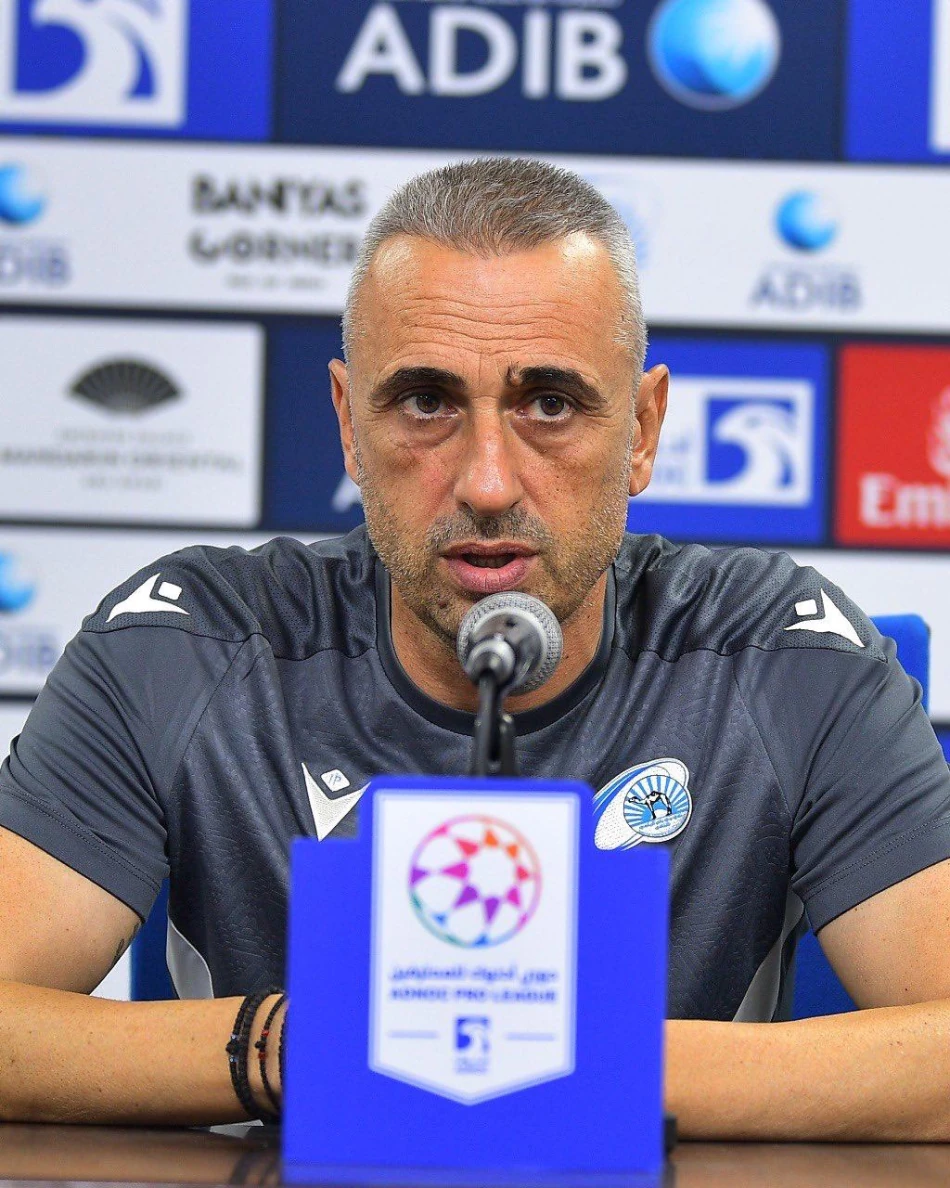
Bani Yas Sack Manager Pitić After Defeat Against Al Jazira
UAE Football Club Fires Second Coach in Four Weeks as Early Season Struggles Mount
Bani Yas FC has dismissed Bulgarian coach Ivaylo Petev just hours after suffering a crushing 4-0 defeat to Al Jazira, marking the second coaching casualty in the UAE's professional league within the first month of the season. The swift decision underscores the unforgiving pressure facing managers in Gulf football, where patience runs thin and results matter immediately.
A Season Already in Crisis
The timing of Petev's dismissal tells the story of modern football's ruthless nature. Within two hours of the final whistle against Al Jazira in the fourth round of the ADNOC Pro League, Bani Yas announced the Bulgarian's departure via their official X account, thanking him for his contributions while wishing him success in future endeavors.
The defeat left Bani Yas rooted to the bottom of the league table with zero points from four matches—a disastrous start that sealed Petev's fate. Four consecutive losses in a league where early momentum often determines final standings made the decision inevitable, regardless of any long-term project or tactical philosophy.
A Troubling Trend Emerges
Petev becomes the second coach to lose his job this season, following Moroccan manager Hussein Ammouta, who was dismissed from Al Jazira after just one round. This rapid turnover reflects a broader pattern in Gulf football, where coaching tenures have shortened dramatically as clubs chase immediate success.
The Economics of Impatience
The quick-trigger approach to coaching changes mirrors trends seen across wealthy football leagues globally. In the UAE, where clubs benefit from significant financial backing and high expectations from supporters, the margin for error has virtually disappeared. Unlike European leagues where coaches might receive 10-15 matches to prove themselves, Gulf clubs increasingly operate on a results-first mentality that prioritizes short-term fixes over sustainable development.
Regional Context and Broader Implications
This coaching carousel isn't unique to the UAE. Saudi Arabia's Pro League has witnessed similar patterns since its recent investment surge, while Qatar's domestic competition has long operated under comparable pressure following the country's World Cup hosting. The difference lies in the speed of decisions—UAE clubs appear increasingly willing to cut losses before problems compound.
Impact on Player Development and Club Culture
The rapid coaching changes create ripple effects beyond immediate results. Players must constantly adapt to new systems, tactical approaches, and training methods, potentially stunting both individual development and team cohesion. For clubs like Bani Yas, building a sustainable footballing identity becomes nearly impossible when leadership changes every few months.
Moreover, these swift dismissals may deter high-quality coaches from accepting positions in the league, knowing that their professional reputations could suffer from circumstances beyond their immediate control. The UAE's football development ambitions require stability and long-term thinking—qualities that seem increasingly rare in the current environment.
What Comes Next
Bani Yas now faces the challenge of finding a replacement capable of rescuing their season while managing expectations in an unforgiving environment. The new appointee will inherit a demoralized squad, zero points, and the knowledge that failure brings swift consequences.
For the broader UAE football landscape, this trend raises questions about whether the pursuit of immediate success is undermining longer-term development goals. As the season progresses, other struggling clubs will watch closely to see whether patience or panic proves more effective in navigating early-season difficulties.
Most Viewed News

 Sara Khaled
Sara Khaled






